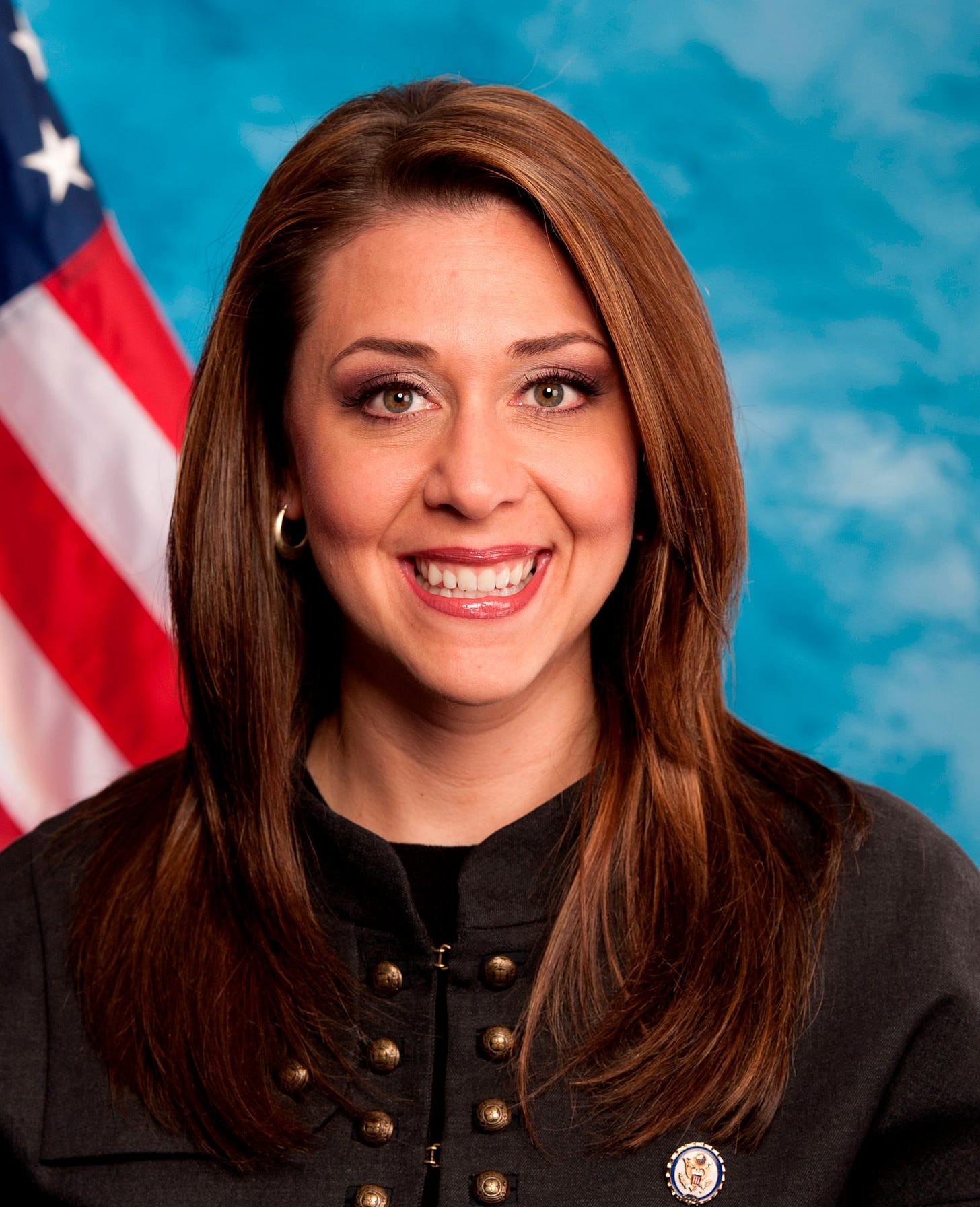Jim Moore: Thoughts on a Wild Week
We need elected officials brave enough to listen to all of their constituents and to serve as their trustees.
Housekeeping
Look forward to the first post from Moira Bowman of the Oregon Food Bank is coming out soon!
Welcome to the Oregon Way community, Bob Dalton, CEO of Sackcloth and Ashes.
Now to the post!
Longtime observer of Oregon and west coast politics. Political analyst for various media outlets, professor at Pacific University.

What a week it has been. As I write this the House has impeached President Donald Trump for a second time. The Senate awaits its role as jurors in the coming trial. The reverberations of the 6 January insurrection are rebounding through Washington, D.C, and through state capitals around the country.
Was this a one off? Is it the beginning of a cycle of political violence? How does this all end?
I have been paying a lot of attention to our elected officials as they negotiate this uncertainty. Certainly those in Congress have experienced politics in a visceral way that is rare. But state legislators and officers, local government officials and workers, and those who are in public service of almost any kind are also in a state of uncertainty about what kind of public will show up at workplaces and meeting spaces.
The historical parallels are all from way before any of us were born. We don’t necessarily see a Civil War in front of us, but how this all ends is opaque.
But let’s get back to those elected officials.
Trustees and delegates

In the 18th century, Edmund Burke had an idea that helps us to make sense out of the roles of those in elective office. He posited that there were two models of behavior.
First, the elected officer could be a delegate. A delegate’s job was to carry out the wishes of the people as well as possible. Back in the late 1700s this was hard to figure out at times, but in the 21st Century a delegate would be reliant on polling of constituents, communications from voters, and, inevitably, the waves of ideas that spill out of social media. A delegate stayed in office as long as the will of the people was carried out.
Second, an elected officer could be a trustee. A trustee’s job was to use judgement to deal with political questions. The role of the electorate was to choose the officeholder with the skills and experience to weigh issues and make political decisions that were the best for the entire polity, regardless of how that polity thought at any particular time.
Burke was decidedly a trustee. On such a platform he was elected to Parliament, and as such a politician he was thrown out at the next election. Turned out his constituents really wanted somebody who would follow what they felt, not somebody who thought for himself.
These ideas were not new to Burke. Aristotle wrote about similar models 2400 years ago. The key, as people thought about and applied Burke’s and Aristotle’s (and many others’) models was that any elected official needed to be more a trustee on certain issues and more of a delegate on other issues. And it didn’t hurt to have a very good sense about what the constituents were thinking about any particular set of concerns.
An age in need of trustees
So here we are in January 2021.
Republicans are making arguments in the face of threats of political violence that sound very much like delegates.
One Oregon lawmaker has emphasized that the 74 million Trump voters need to have their concerns dealt with by the entire government structure—he has not made any similar argument about the 17,000 people in his own district (out of about 31,000 voters) who did not support him in the last election.
That is the thing about the delegate model. Politicians tend to shop for the constituency that supports what they want to do.
Democrats are making arguments in the face of the same threats that sound very much like trustees.
Democratic members of Congress cast impeachment votes based on an attack fomented by the executive on the legislative branch as it was performing its constitutional and legal duty. High ideals, but most of those Democrats will not face an electoral cost at home in their safe districts.
One person who stood out in all this was Washington Republican Jaime Herrera Beutler. She cast one of ten Republican House votes for impeachment, saying, “My vote to impeach our sitting president is not a fear-based decision. I am not choosing a side, I’m choosing truth. It’s the only way to defeat fear.” She did this in face of a strong repudiation from her local Republican Party organizations and the almost certainty of a primary challenge in the 2022 election. But she was being a trustee in this momentous case.
Trustees in the Pacific Northwest
My fellow bloggers on this site are an amazing collection of thinkers and activists and political nerds. We are all concerned with a political system that seems to be losing touch with the people, and with a political system that seems to reward bad behavior rather than strive for good policy. As has been pointed out by several Oregon Way pieces, such as Bruce Abernethy’s most recent contribution, the current incentives seem to have disproprortionately tilted the electoral scales toward delegates.
The attack on the Capitol just puts all our concerns in a starker perspective.
I don’t know what the future will bring, but my strong sense is that we need people like former governor Vic Atiyeh to stand up, on either side, and take more trustee-like positions. Vic (whose biography is sitting on the floor of my office awaiting even more cuts until it is shorter than 450 pages) made a decision before he even ran for his first office in 1958—he would make governing decisions without considering what it would do for his chances at re-election. He did not follow this 100% of the time, but he did it enough that he became comfortable being an outsider in the Oregon legislature on many, many issues.
So, to the Republicans who are acting more like delegates right now, look to your entire constituency, not just the part that voted for you
To the Democrats who are acting more like trustees right now, push across the aisle and have more conversations with your Republican colleagues and your Republican constituents.
Talking and disagreeing—and compromise—are always better than intimidation. The goal of governance is not to win, it is to create policy that is the best for all those in our various political fiefdoms. To reach that goal, we need candidates and officials brave enough to listen to all of their constituents and to serve as their trustees.
****************************************
Keep the conversation going:
Facebook (facebook.com/oregonway)
Twitter (@the_oregon_way)
Check out our podcast:
#124





Excellent article!!
Just spit-balling, but has there been any recent or popular TED Talk or similar that shares this continuum of Delegate/Trustee?
It is a helpful idea, that could use more discussion across many platforms.
Thanks, Jim. Very insightful. It would be interesting to examine the ways that our electoral systems and lobbying practices contribute to the delegate mentality. For that matter, even our language reflects this problem, as we often call the struggle by our elected officials to find balance on issues "waffling" rather than deliberation.
Regarding the former, closed primaries! The delegate mentality becomes all the more damaging when tied to the minority of citizens who vote in a partisan primary.
I'm sure Jamie Herrera Beutler voted her conscience, and she explained her vote quite eloquently. But it helps that she comes from a state with a top two primary system. Ditto for Lisa Murkowski, the first Republican Senator to support impeachment -- since Alaska now has a top-four primary system. In my opinion, the most effective structural reforms to rebalance the trend toward the delegate model over the trustee model would be open, top two primaries and ranked choice voting.
As to lobbying practices, think of the effect of the pledges that organizations use to demand fealty to a particular policy, e.g. Grover Norquist's no-tax demands. There are examples on the left as well. Even the use of candidate questionnaires (some of which I drafted in the past) can be problematic if we overdo it by treating more and more issues as pass-fail, litmus test absolutes, to be used not only for endorsement purposes but for follow-on "accountability sessions" to enforce fealty to fixed positions.
If there is a balance to be found, I think it is appropriate to demand of candidates and elected officials a commitment to the principles of democracy and party, but not to try to attach more and more puppet strings to them in the guise of accountability.